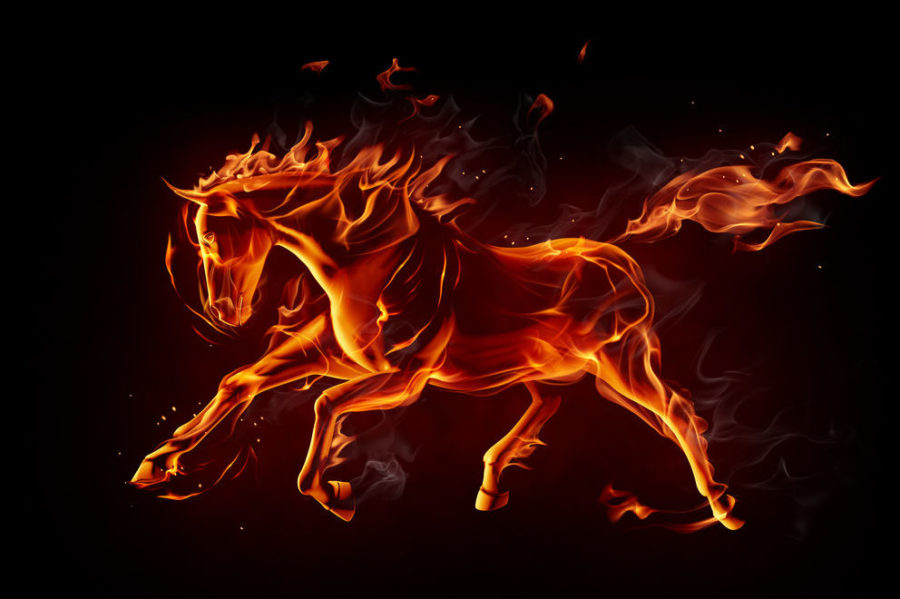The Five Elements Theory is a significant part of Traditional Chinese Medicine, and has been in use for thousands of years. It’s believed that the five elements (Wood, Fire, Earth, Metal and Water) can be related to different aspects of the body and the surrounding natural world. This issue’s column is all about the Fire horse – see if you can recognize any of these traits in your own equine!
Fire is beautiful, but must be handled with care. Most of us had to learn the hard way that even though fire looks beautiful and inviting, it is hot and should not be played with. The Fire horse temperament is beautiful and energetic and wonderful for a show animal. But his spirit can make him too hot for someone who does not have the experience to deal with emotional outbursts.
Training The Fire Horse
The young Fire horse in training needs gentler handling than other types. Too much of a workload too soon will overwhelm him. Harsh words or insensitivity will hurt his feelings and he will shut down emotionally. The emotionally deprived Fire horse will lose his joyful nature and refuse to work, or work without his normal brilliance.
Fire, when properly managed, provides warmth and comfort. It cooks our food and provides us with light. But if allowed to burn out of control, it is devastating. Too much fuel and oxygen turns a simple flame into a raging inferno that burns everything in its path.
A Fire horse, when properly trained and handled, can be a true pleasure to be around. The balanced Fire horse can be great around kids and beginner adults. His spirit is kept burning with gentle love and attention. He loves to be admired and to show off his beauty. This same horse, when fed a high-energy ration and kept in fit condition, can be extremely dangerous except in the hands of a professional horseman. There is never any ill intent in the actions of a Fire horse, but he can kick or strike out and injure unsuspecting bystanders.
Fuelling The Fire Horse
The internal combustion engine relies on a single spark to bring it to life. Once running, the engine requires the correct temperature to run smoothly, and the correct fuel-to-oxygen ratio to produce energy efficiently. Incorrect temperature and poor fuel quality will give poor service at best and create a toxic by-product at worst.
The Fire horse temperament has a similar sensitive digestive process. Too hot or cold a ration will upset him, leading to colic or diarrhea. The healthy heart of a well-loved Fire horse properly pumps oxygen, but emotional upset affects the delicate balance of his internal engine, resulting in weight loss or painful ulcers. Pain from any source is intolerable for the Fire horse, contributing to digestive upset.
Fire is beautiful, full of energy, and sensitive to fuel and oxygen. When nurtured, properly fueled and controlled, it’s warm, loving and bright. Poorly managed, it burns inefficiently or out of control. So it is with the Fire horse.







